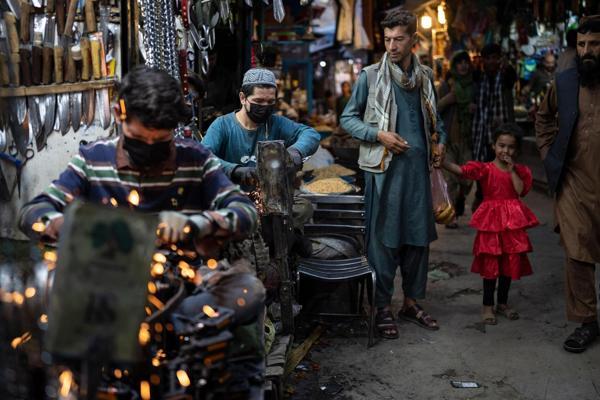Afghan economy faces 'uncertain' future: World Bank
WASHINGTON


A man and his daughter watch as a worker sharpens a knife at the Poli Khishti Market downtown in Kabul, Afghanistan, on May 27, 2023.
Afghanistan's economy continues to face significant challenges despite showing signs of modest growth, the World Bank has warned, with the future "uncertain."
The economy's challenges include "fiscal constraints, trade imbalances, and a limited capacity for public investment," the bank said in its Afghanistan Development Update.
Critical factors for long-term recovery include enabling women's participation in the economy, maintaining price stability and dealing with key deficits in human capital, such as education and healthcare, the multilateral development lender said.
While Afghanistan has seen GDP growth of 2.7 percent, driven by private consumption, this has "recouped only about 10 percent of past economic losses," the World Bank said.
Afghanistan has been ruled by the Taliban since 2021, when their forces capitalized on the withdrawal of the U.S. military under a peace deal to overthrow the country's government.
The Taliban's government has not been officially recognized by any country, and the economy remains largely isolated, with many Afghans living under the poverty line.
"Afghanistan's long-term growth prospects depend on tapping into the substantial potential of the domestic private sector and improving the overall business environment," said World Bank country director for Afghanistan Faris Hadad-Zervos.
The economy requires more investment, access to finance for small businesses, and support for skilled women entrepreneurs, Hadad-Zervos added.
The World Bank noted that partial economic recovery, alongside falling food prices, has contributed to a gradual improvement in household welfare.
But it said many Afghan households still struggle to meet basic needs and that "poverty remains widespread."
